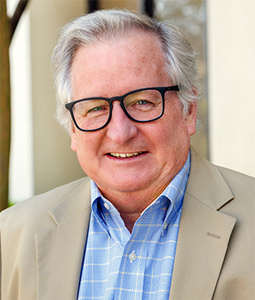Department of Biological Sciences
General Directory
Jeff Twiss
| Title: | Professor, SmartState Chair in Childhood Neurotherapeutics, Associate Dean for Research Research Concentration - Neurobiology |
| Department: | Biological Sciences McCausland College of Arts and Sciences |
| Email: | twiss@mailbox.sc.edu |
| Phone: | 777-9215 |
| Office: | CLS, Room 707 |
| Resources: | Center for Childhood Neurotherapeutics |

Research
Our research focuses on neural repair mechanisms, specifically on how to utilize these mechanisms to improve recovery after injury of the nervous system. Long range communication in the nervous system is provided through the axonal processes that connect neurons with their targets. These cytoplasmic processes can extend for several centimeters in rodents and a meter or more in larger mammals like humans. Disruption of this communication pathway, either through injury or disease, often results in permanent loss of function unless neural connections can be restored. Our work aims to restore neural function by finding means to improve regeneration of axons. However, the general mechanisms that we study also impact on neural function, synaptic plasticity, and development.
Both the intrinsic growth capacity of neurons and the extrinsic environment that the injured neurons are exposed to affect neural repair. In the brain and spinal cord, the extrinsic environment actively blocks regeneration, particularly after injury. This does not occur in peripheral nerves, but even there regeneration is painstakingly slow with axons growing only 1-2 mm each day. Our work concentrates on the neuron’s intrinsic mechanisms for regeneration that we suspect can be utilized to both accelerate regeneration and overcome growth inhibitory environments.
Several years ago, our lab showed that mature axons are capable of locally synthesizing new proteins (Zheng et al., 2001). This is a mechanism that was thought to be restricted to developing neurons, but it is now clear that some neurons maintain this capability into adulthood. Several stimuli are now known to activate translation in axons including injury. We now know that several hundred different mRNAs are transported into axons and these locally synthesized proteins have quite diverse functions. Some proteins allow for retrograde signaling, others function locally for growth of the axon, and others have as yet unrecognized functions. It is not clear how the neuron knows which mRNAs to localize and when and where to translate these mRNAs. Both mechanisms are surprisingly selective at the mRNA level providing precise spatial and temporal regulation of protein levels within axons. Our lab team is unraveling the molecular pathways and players that underlie these events and using this knowledge to develop new strategies for neural repair.
Our research is funded by grant awards from NIH (P01-NS055976, R01-NS041596, R01-NS089633), Department of Defense/US Army Medical Research Program (W81XWH-13-1-0308), the US-Israel Binational Science Foundation (2011329), and the Dr. Miriam and Sheldon G. Adelson Medical Research Foundation. Dr. Twiss is the USC Childhood Neurotherapeutics Chair in the South Carolina SmartState Endowment Program.
Publications